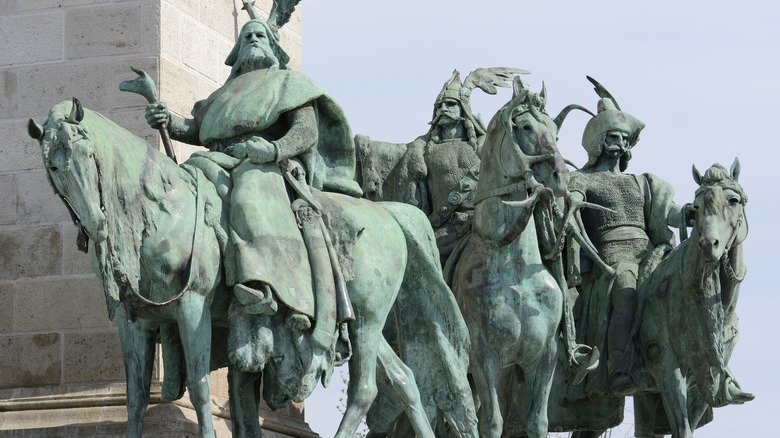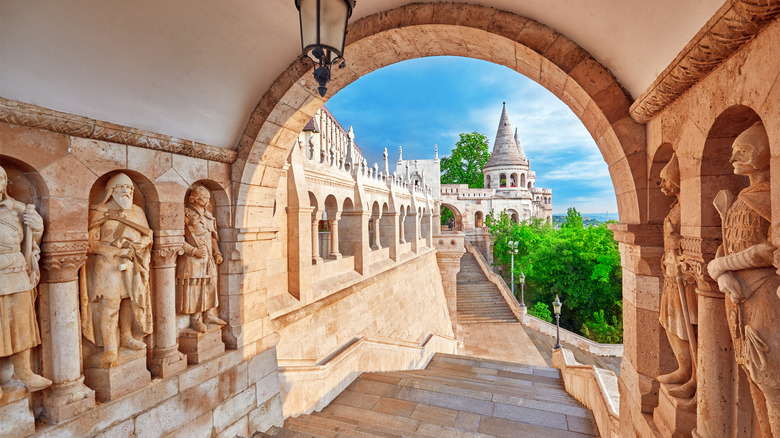How King Andrew III's Death Ended A Dynasty
Europe boasts a long history of colorful, romantic, and sometimes creepy royal families — the Bourbons, the Tudors, the Hapsburgs, the Stuarts, the Medici, the Bonapartes. However, few people know about the most exotic and longest-lived dynasties in European history: the House of Árpád, kings of Hungary from about 900 to 1301 (via Britannica).
The family was named for its legendary ancestor, Árpád. At the time, the people we now call Hungarians, or Magyars, were still a confederation of tribes from the steppe that separates Europe from Asia, likely from the Ural foothills. Like the Mongols, the Tatars, the Huns, and other steppe people, the Magyars lived as nomads, traveling by horse, raiding enemies, and cultivating rock star facial hair. It was Árpád who led the Magyars over the Carpathian Mountains to settle what we now call Hungary (via Britannica).
For centuries, the Árpád family held onto Central Europe tenaciously, resisting efforts by Turkish Sultans, the Holy Roman Emperors, and other nomadic invaders to destabilize and conquer the region. Gradually, though, the dynasty weakened under these attacks. It was only a matter of time before the family finally collapsed.
Contenders for the crown
Andrew III (1265-1301), last king of the Árpád dynasty, was only barely a Hungarian. He was really more of an Italian. Medievalists recounts the story of his family. Andrew's mother was Tommasina Morosini of the powerful Morosini clan of Venice, while his paternal grandmother had been a princess of the House of Este, from Ferrara. Andrew was born and raised along the canals of Venice and raised by his uncle Albertino. In Hungary, the king's son was referred to as "Andrew the Venetian."
One of the problems facing the kings of Hungary since its 13th century war against the Mongols was a poor balance of power between the king and the noblemen who served him, per Britannica. Andrew's father had negotiated a power-sharing deal, but it had only made him look weak. A growing number of noblemen began claiming the right to be king of Hungary, not only Hungarians but other Europeans, with only the flimsiest justifications. When Andrew became king, a dozen men demanded his crown, with one of them, Charles Anjou of Naples, pushing his 12-year-old son as a claimant.
Andrew III died in 1301, a young man, worn out by the weight of his crown. A civil war ensued, and eventually a new, Bohemian dynasty assumed the Hungarian throne. It seems the price the Hungarians paid to become European was to lose their Asian kings.

